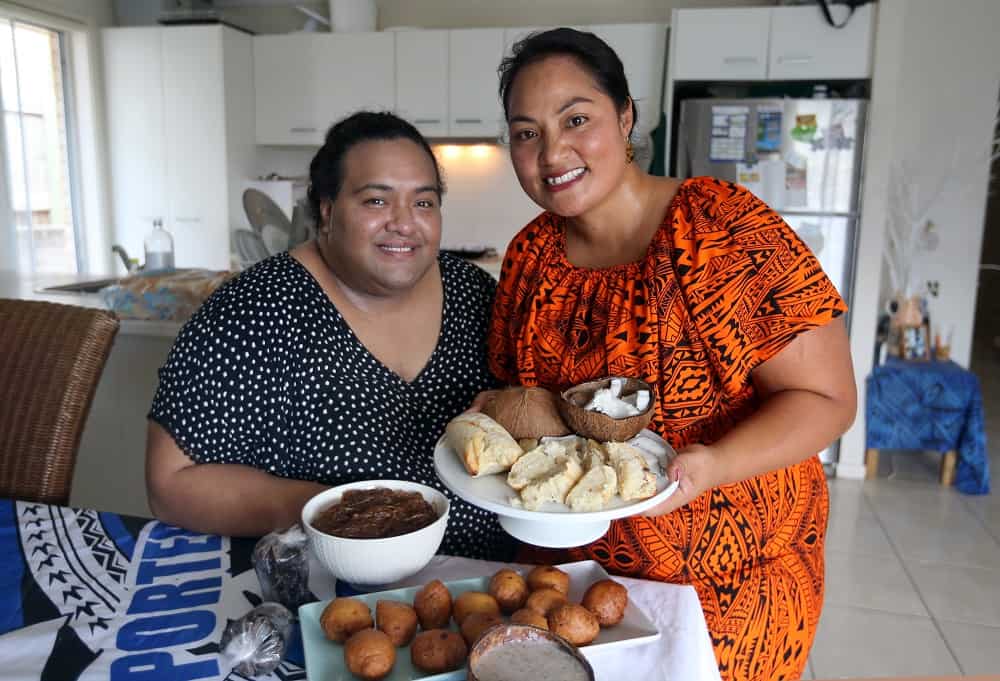
Fau Ofoia and Misilei Tautali with traditional Samoan dishes
If you close your eyes in Fau Ofoia’s kitchen you can almost hear the sound of the waves rolling in.
The air is heavy with the scent of coconut and banana. There is an island feel about this peaceful home.
Fau and her childhood friend Misilei Tautali have been baking traditional Samoan Faapapa (baked coconut bread).
As the women slice up the still-warm Faapapa the conversation turns from baking to friendships.
“Our parents moved from Samoa when we were young and we both grew up in Auckland. My parents moved to Ipswich when I was 12 and I didn’t see Fau again until she came over for her cousin’s wedding in 2009,” Misilei said.
“When she moved here in 2015 we reconnected again. We live just down the road from one another.
“Our friendship means a lot. There is lots of laughter when we are together, it’s an eternal friendship.”
Fau feels her connection with Misilei is a rare gem.
“With Lei, like with baking, it makes me feel like home. She is like family and no matter how many years go in between, when we meet up again we are laughing like we were back at school,” Fau said.
The friends are both married with children of their own now. They are both from large families and they both belong to the same church, The Church of Jesus Christ of Latter-Day Saints.
“Samoan has always been a very religious culture. It doesn’t matter which religon, it is probably the centre of every home,” Misilei explains.
“A lot of the food we make is made in bulk to feed everyone. Sometimes it’s for a family meeting, funeral, or a wedding. That is what all of these dishes remind me of.”
When Fau was growing up she used to help her parents make Faapapa.
“We would often have it for lunches, when budget wasn’t too great back then. My parents had four kids so things were a bit tough. So cooking this dish reminds me of home and all the wonderful memories of growing up with your parents,” she said.
“We would take turns cutting and buttering the foil. That was mostly my job. Now my daughter does this to help me.”
Family is all important in Samoan culture. Fa’alavelave is a Samoan custom of giving money for special occasions. Fau explains it can be a financial burden that impacts the way families make ends meet.
“I have a sewing business that helps to support the family. I sew Samoan attire. My husband also does a lot of baking for our home-made baking business. We supply traditional dishes for baptisms and funerals, that sort of thing,” she said.
Despite Misilei’s very busy life looking after her five children under 10, she also manages to give her time to volunteer at the Redbank Plains Community Centre.
“I started to volunteer initially because I wanted to find a paying job and I wanted to get some experience. Now I know that I want to work with people,” she said.
“I just came back from visiting Samoa. It was the first time I had been back since I left as a child. Going back there really made my children and I appreciate what we have here. I understand better the struggle back home.
“The children there play with pots and pans and pieces of wood. My children want a PS4. So it was a teaching experience for them.
“Over in Samoa they grow a lot of their own food fresh and have their animals, life is simpler and they have their families.
“The food tastes amazing because it is always so fresh, it’s either straight off the tree, garden or straight out of the ocean. Everything is beautiful there.”
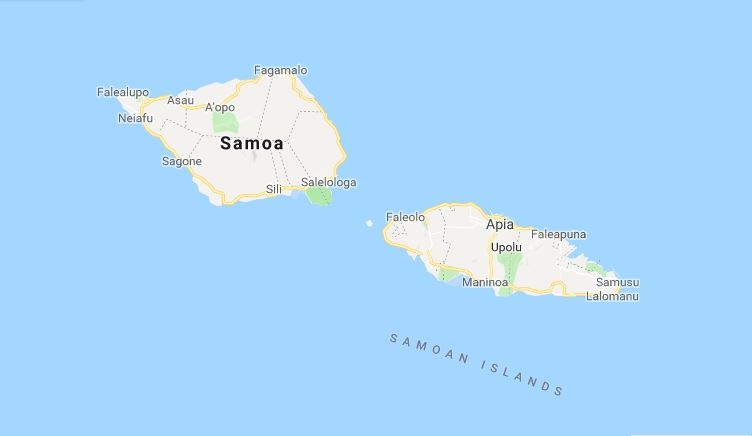
Fact File
Samoa’s official name is the Independent State of Samoa. The two main islands that make up Samoa are Upolu and Savai’i. There are also 8 smaller islands. The islands are mountainous and of volcanic origin. The country is located half way between Hawaii and New Zealand.
The country is part of a group of islands in Polynesia. It has a population of 196, 440 (2017) and languages spoken are Samoan and English.
Apia is the capital with a population of 37, 000.
Samoa was known formerly as Western Samoa. In 1997 it became the Independent State of Samoa.
The first Polynesians to arrive on the island can be traced back to 1000 BC.
European trader started to arrive in the late 1700s. Christianianity came to Samoa in 1830.
After years of civil war, the Germans took the islands to the west and the Americans took the islands to the east, now known as America Samoa.
New Zealand captured Western Samoa from the Germans and took control on behalf of the United Nations from 1918 until 1962 when they gained their independence.
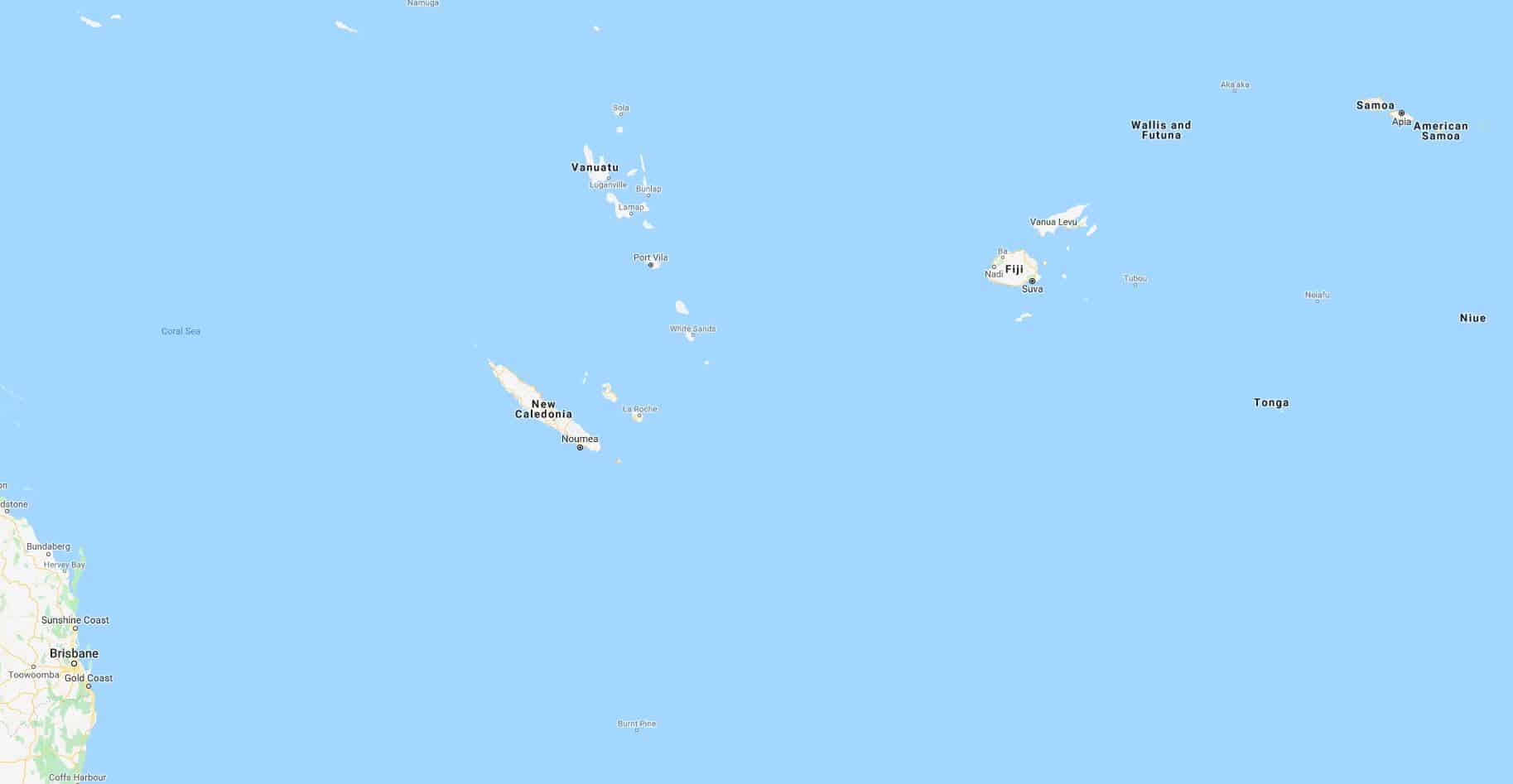
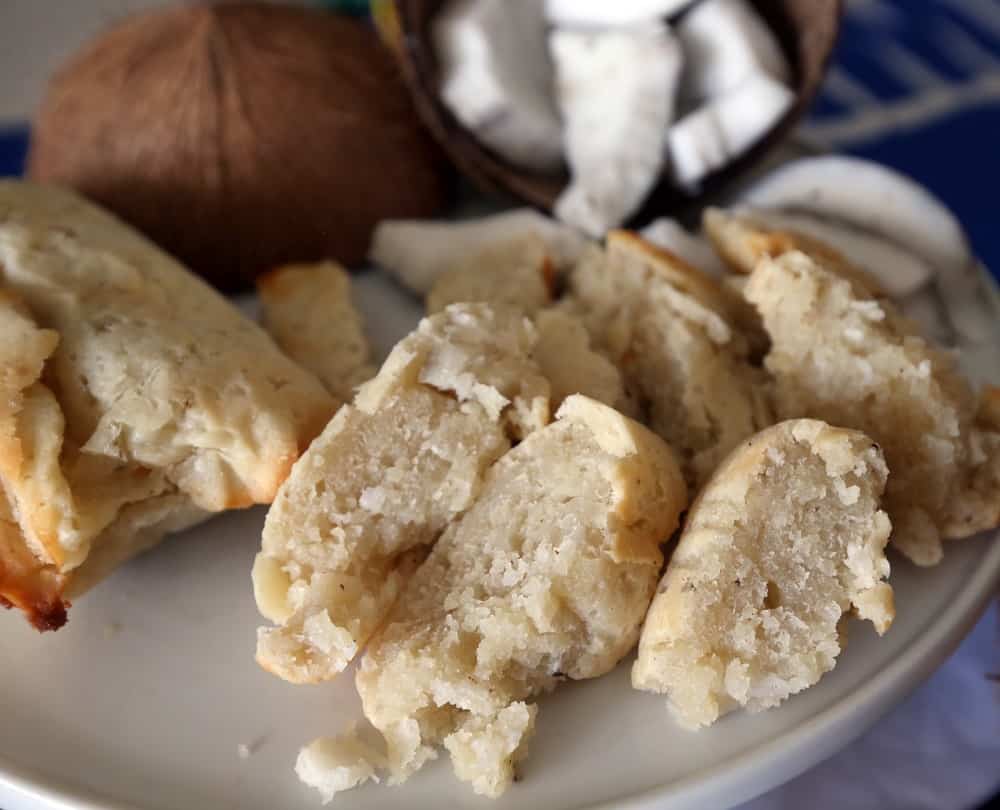
Recipe
Faapapa by Fau Ofoia
Ingredients:
4 cups plain flour
2/3 cup white sugar
1 ½ cups of freshly grated coconut
2 cans of coconut cream
Method:
We grate fresh coconut. The taste of coconut is stronger.
Put it all in a bowl and mix it together. You want the batter to not be too dry. If it’s too dry add a little bit of milk. It should be sticky.
I make strips of about A5 size and then I line the foil with heaps of butter.
Then you put the dough in the foil, and wrap (you will need more than one).
Bake in the oven at 180 degrees fan forced. For about 50 minutes. You poke it to see if it’s ready. If it too moist, leave it a bit longer or if you want it browner on the outside and a bit drier, leave it longer. I like it nice and soft on the inside.


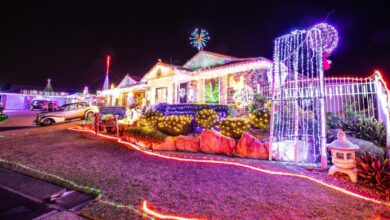
4.5
5